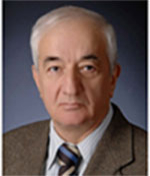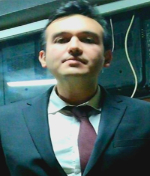17 Şubat 2020 tarihinde kurulan Yapay Zeka Hukuku Araştırma Grubu haftanın Pazartesi günleri çalışmalarına devam ediyor. Araştırma grubu bünyesinde çalışmalarını sürdüren ve Alman Yapay Zeka Hukukuna vakıf olan uzman ve üyeler Ar. Gör. Mertkan Torun ve BAU mezunu Stj. Av. Celal Duruhan Aydınlı nezaretinde çalışmalar devam etmektedir.
IGUL Direktörlüğü multidisipliner bir araştırma grubu oluşturmuştur. Günümüzde Ceza Adalet Sistemi içerisinde elektronik verilerin çevrimiçi ortamda yoğun bir şekilde kullanılmaya başlamasıyla ve elektronik veriler ile çalışan teknolojilerin gelişmesi ile birlikte gerek ceza hukuku gerekse hukukun diğer branşları açısından ortaya çıkan yeniliklerin incelenmesi hedeflenmektedir. Bu amaç doğrultusunda 17 Şubat 2020 tarihinde Yapay Zeka Hukuku Araştırma Grubu kurulmuştur. Araştırma grubu, ilk olarak makale okuma toplantıları ve bilimsel toplantılar düzenlemeye başlamıştır. 2020 yılından bu yana düzenli olarak gerçekleştirilen bu toplantılara gerek Türkiye gerek yurtdışından uzmanlar davet edilmiştir. Bugüne kadar yaklaşık 30 toplantı düzenlenmiştir. Düzenlenen bu toplantılarda yapay zeka uygulamalarının getirdiği yenilikler ve gelişmelerin farklı hukuk dallarına etkileri tartışılmıştır. 2022 yılında da çalışmalar sürdürülecektir.
Yapay Zeka Hukuku Araştırma Grubu’nun düzenlediği etkinlik kayıtlarına buradan ulaşabilirsiniz.
 |
 |
 |
 |
|
Prof. Dr. Feridun Yenisey |
Dr. Zehra Başer Doğan |
Av. Celal Duruhan Aydınlı |
Ar. Gör. Mertkan Torun |
SEGBİS ve Sanal Mahkeme Sistemi (Feridun Yenisey, 8 Haziran 2020)
Yapay Zeka, İnsan ve Hukuk: Kuramsal Bir Değerlendirme (Elif Küzeci, 28 Mayıs 2020)
Geleceğin Odak Noktaları, İleri Teknolojiler ve Avukatlık (Şafak Herdem, 27 Mayıs 2020)
Yapay Zekanın Vergi Hukuku Üzerindeki Etkisi ve İşlevi (Gülsen Güneş, 26 Mayıs 2020)
Şirketler Hukuku, Yapay Zekanın Fikri Mülkiyet Nezdinde Korunması (Ayşe Şahin, 21 Mayıs 2020)
Yapay Zeka Karşısında Kişisel Verilerin Ceza Hukukuyla Korunması (Zeynel Temel Kangal, 4 Mayıs 2020)
Yapay Zeka ve Etik (Şebnem Ahi, Feridun Yenisey, 29 Nisan 2020)
Pandemi ile Mücadelede Yapay Zeka ve Sağlık Teknolojileri (Gökhan Ahi, Nafiz Arıca, Feridun Yenisey, 28 Nisan 2020)
Yapay Zeka ve Ceza Hukuku (Sinan Altunç, 22 Nisan 2020)
Yapay Zeka ve Hukuki Sorumluluk (Zafer Kahraman, 21 Nisan 2020)
Yapay Zeka Hukuku Toplantısı (10 Nisan 2020)
Digitization, Artificial Intelligence and the Law (University of Wuerzburg, 14-15 Mart 2019 )
Genetics, Robotics ve Criminal Law Sypmposium (Bahçeşehir Üniversitesi, 18 April 2014 )
Provolo, Riondato, Yenisey; Genetics, Robotics, Law, Punishment (Padova University Press 2014)
Institute for Global Understanding of Rule of Law- Artificial Intelligence Research Group
I. Introduction
According to Andrew Ng, founder of Google Brain and scientist working in the field of artificial intelligence, artificial intelligence is the “electricity” of our age. There are new developments in the field of artificial intelligence every day. These developments and the use of artificial intelligence in different areas of life have made interdisciplinary academic studies mandatory.
As a requirement of this interdisciplinary understanding, the relations between law and artificial intelligence have been the subject of these researches. For these reasons, an artificial intelligence research group was established in IGUL (Institute for Global Understanding of Rule of Law, which is within the body of Law Faculty of Bahçeşehir University.
In this article, the structure of the research group, the areas in which it is conducted, the research and seminars that have been done, and the planned future studies will be discussed. This article is intended to introduce the research group as well as to summarize the research conducted.
II. History of IGUL and IGUL Artificial Intelligence Research Group
IGUL was founded at Bahçeşehir University under the presidency of Professor Feridun Yenisey to develop a common understanding and organize training programs at the global level based on the principles of the rule of law.
Due to its global understanding, IGUL is working with many universities in Europe and the United States. Seminars and public lectures are organized with the participation of different law faculties. Academicians, judges and lawyers from different countries attended the seminar as speakers and lecturer.
IGUL has provided more than 14000 certificates to participants who completed the program since June 2003. In 2020, IGUL artificial intelligence research group was established.
On 27.02.2020, the first meeting of the artificial intelligence research group was held, moderated by Professor Feridun Yenisey. In addition to Professor Ayşe Nuhoğlu, Dean of Bahçeşehir University Faculty of Law, Professor Nafiz Arıca, Dean of Faculty of Engineering at Bahçeşehir University, lawyers from Istanbul Bar Association attended this meeting.
In this meeting, the structure of the research group, the topics to be studied, the duties of the people participating in the research group, the future studies were discussed. After the topics to be studied at the meeting were determined in general, an interdisciplinary and global study was decided to be carried out. For these reasons, it was concluded that it is necessary to work with academicians and researchers working in different fields such as engineering, physics, economics, philosophy, political science, and sociology. In addition, since artificial intelligence is a transnational issue, it was concluded that studies should be conducted with researchers in different countries.
III. Structure of IGUL Artificial Intelligence Research Group
Artificial intelligence research group consists of co-chairs, advisory board, supervisory board, secretariat, researchers and participants. There are academicians from different fields, lawyers, students in the research group. Since one of our researchers is currently doing a doctorate in Oxford University, she continues to support the research group from abroad. She also provides a link to Oxford University on our future studies.
In addition to regular meetings held by the advisory board every week, public meetings are held every month. In addition, a curriculum has been created and seminars on the relationship between artificial intelligence and law are organized for participants from different fields.
IV. Creating an Artificial Intelligence Library
After the first meeting, a literature search was made on the subjects decided to be studied as a result of scanning electronic resources such as Google Scholar, Academia, Elsevier, JSTOR and printed resources and periodicals in Bahçeşehir University Max Planck Library and Bahçeşehir University Barbaros Library.
It has been ensured that the articles, journals and theses in the library and electronic resources are brought together and classified, and publications can be found in the Max Planck Library of Bahçeşehir University. The list of these publications is listed on our website, and every participant interested in the research group can find this publication by accessing this index.
It is aimed to find all publications on the subjects in the classification determined by the meetings. In addition, support has been received from researchers abroad in finding and classifying these publications.
V. Classification of Artificial Intelligence Researches In Our Group
Although the topics planned to be studied in the artificial intelligence working group were determined at the first meeting held on 27.02.2020 with their draft versions, the classification of these issues was made as follows in the subsequent meetings.
a) Artificial Intelligence in Education
It is discussed how artificial intelligence can be used in educational applications and the possible effects of artificial intelligence applications on new generation educational technologies.
b) Self-Driving Cars and Autonomous Vehicles
One of the areas where the discussions about artificial intelligence are intense is autonomous vehicles, and the legal responsibilities of autonomous vehicles, the prevention of remote interventions on the systems of autonomous vehicles, and the ethical examination of the choices that autonomous cars may have to make in case of possible accidents are emphasized.
c) Artificial Intelligence and Legal Argumentation
The use of artificial intelligence in the creation of laws, regulations, contracts, or the usability of artificial intelligence in the interpretation of existing sources of law and in legal argumentation models is discussed and whether or not certain sources of law can be examined by artificial intelligence by using Machine Learning and language processing technologies.
d) Intellectual and Industrial Property Rights on Artificial Intelligence
The ownership right of industrial, scientific or artistic works in which artificial intelligence beings play a role in the production processes, and the possible problems that may arise in the use and protection of these rights are discussed. Since the effective use of artificial intelligence is envisaged, especially in business life, the discussions on this problem continue intensely.
e) Legal Personality of Artificial Intelligence
Since the classification of the legal personality of artificial intelligence applications will also affect their responsibilities and rights, debates are continuing in academia and international institutions.
f) Artificial Intelligence and Ethics
There is a possibility that discrimination can be made in subjects such as gender, race, language and religion in artificial intelligence applications. In the use of artificial intelligence applications, it is aimed to ensure the protection of basic human rights, to control military practices, to investigate the decision making processes of artificial intelligence and artificial intelligence algorithms.
g) Effects of Artificial Intelligence on Contracts Law
Since contracts using artificial intelligence applications are already being made, the effective use of artificial intelligence in areas such as commercial law, contracts law, insurance law is examined. In addition, possible effects of using artificial intelligence as labor will be examined.
h) Artificial Intelligence and Criminal Law
It is discussed who will be responsible for the crimes that artificial intelligence will commit or participate in, and whether the acts related to criminal law can be done by artificial intelligence. In addition, practices that may be beneficial in terms of criminal procedure law, evidence law and proof law are examined under this heading. This issue also concerns the informatics law which is in close relation with the criminal law.
i) Predictive Policing Applications
Predictive policing practices have started to be used more actively. The use of artificial intelligence technologies and the appropriateness of the use of this technology to law and criminal law principles are discussed in predictive policing practices that aim to predict crimes and/or criminals and take measures accordingly.
j) Artificial Intelligence and Robot Law
The origin of the studies on robot law goes back much earlier. In this sub-field, the close relationship of robot law with artificial intelligence is examined and it examines the use of robots in daily life, trade and military applications.
k) Using Artificial Intelligence in Legal Profession
Today it is debated whether it is possible to use artificial intelligence in legal professional practices. Some attempts have been made in this regard with legal softwares. In this sub-field, how the professions such as lawyer, judge, prosecutor's office and notary can use artificial intelligence in law-related applications and the problems that will arise as a result of these uses will be investigated.
VI. Seminars and Meetings Held by the Research Group
After creating a library in the above-mentioned areas, seminars on the legal responsibility of artificial intelligence, the criminal responsibility of artificial intelligence, the use of personal data in artificial intelligence applications, and the ethical problems of artificial intelligence have been held so far. Studies are carried out with the Bar Associations and with other universities. Due to the high level of participation in these meetings, it is aimed to organize an international workshop after the COVID-19 pandemic ends.
It is a universal issue to follow artificial intelligence practices and theoretical developments in the field of artificial intelligence. Therefore, an intense connection is maintained with universities abroad such as Oxford University. Studies on robot law and artificial intelligence applications at the University of Würzburg are also closely monitored.
VII. Conclusion
There are thousands of new developments in the field of artificial intelligence every day. Following the new developments in the world in the field of law is very important for the development of law. In addition, the effective use of artificial intelligence applications in life has made artificial intelligence applications a subject of law.
In addition, it is very necessary to achieve universality in artificial intelligence research. Therefore, it is very important for IGUL to communicate with schools that have been working in this field for a long time and have established separate study groups, such as the University of Würzburg. With this mutual interaction, artificial intelligence applications in different countries can be examined. And a comparative analysis of artificial intelligence law practices in different countries will be possible.
IGUL Yapay Zeka Hukuku Araştırma Grubu'nun sürekli kaynak taramaları ile aşağıdaki kaynak listesi güncellenmektedir.
Kaynaklar Max Planck Kütüphanesi'nde araştırmacıların kullanımına açıktır.
Kitaplar
ERSOY, Çağlar, “Robotlar, Yapay Zeka ve Hukuk”, On İki Levha Yayıncılık, İstanbul 2019
Kevin Warwick, Artificial Intelligence: the basics, Routledge 2012
Iyad Rahwan, Guillermo R. Simari ed., Argumentation in Artificial Intelligence, Springer, 2009
Künstliche Intelligenz und Recht im Kontext von Industrie 4.0, 2019
Makaleler
AKSOY, Hüseyin Can, Avrupa Birliği Sorumluluk Hukukunda Yeni Bir Özne: Robotlar, II. Avrupa Birliği Hukukunda Güncel Gelişmeler Konferansı –Bildiri Kitapçığı–, 10.05.2018 / ATAUM, Ankara, s. 18.
ALTUNÇ, Sinan, (2019, Ekim) “Robotlar, Yapay Zeka ve Ceza Hukuku”
AYDEMİR, Melis, Yapay Zekalı Robotların Ceza Sorumluluklarının Araştırılması, Suç ve Ceza Dergisi 2018 Sayı:4, s. 1-97
BAYAMLIOĞLU, Emre, “Akıllı Yazılımlar ve Hukuki Statüsü: Yapay Zekâ ve Kişilik Üzerine Bir Deneme”, Uğur Alacakaptan’a Armağan Cilt-2, Derleyen Mehmet Murat İnceoğlu, 1.B., İstanbul Bilgi Üniversitesi Yayınları, İstanbul 2008, s.131-140
DÜLGER, Murat Volkan, Yapay Zekalı Varlıkların Hukuk Dünyasına Yansıması: Bu Varlıkların Hukuki Statüleri Nasıl Belirlenmeli?
DÜLGER, Murat Volkan, Yapay Zeka Teknolojileri ve Veri Koruma Hukuku
DÜLGER, Murat Volkan, Bir Hukuk-Kurgu Denemesi: Yapay Zekalı Varlığın Hukuki Sorumluluğu Olabilir Mi?
DÜLGER, Murat Volkan, Günümüz Yapay Zeka Teknolojisi ve 'Robot Yargıç/Avukat' Gerçeği
KILIÇARSLAN, Seda Kara, (2019) “Yapay Zekanın Hukuki Statüsü ve Hukuki Kişiliği Üzerine Tartışmalar”, Yıldırım Beyazıt Hukuk Dergisi 2019/2, s. 363-389
PEKMEZ, Tuba Kelep, Otonom Araçların Kullanımından Doğan Cezaî Sorumluluk: Türk Hukuku Bakımından Genel Bir Değerlendirme ,Ceza Hukuku ve Kriminoloji Dergisi-Journal of Penal Law and Criminology 2018; 6(2):173-195
ÖZBEK, C., ÖZBEK, V. Ö., Yapay Zekânın Dâhil Olduğu Suçlar Bakımından Ceza Hukuku Sorumluluğunun Belirlenmesi, Ceza Hukuku Dergisi, Cilt: 14, Sayı: 41, Aralık 2019, Sayfa: 603-622
YÜKSEL, Armağan Ebru Bozkurt, “Robot Hukuku”, Türkiye Adalet Akademisi Dergisi, Sayı 29, Ocak 2017
YÜKSEL, Armağan Ebru Bozkurt, “Yapay Zekanın Buluşlarının Patentlenmesi”, Uyuşmazlık Mahkemesi Dergisi, Yıl:6 Sayı:11 s. 585-622 (Haziran 2018)
YETİM, Servet, “Sürücüsüz Araçlar ve Getirdiği / Getireceği Hukuki Sorunlar”, Ankara Barosu Dergisi, 2016/1, s. 128.
ZORLUEL, Mustafa, Yapay Zeka ve Telif Hakkı, Türkiye Barolar Birliği Dergisi 2019(142) s. 305-353
Gonenc Gurkaynak, Ilay Yilmaz, Gunes Haksever, Stifling artificial intelligence: Human perils, Computer Law & Security Review: The International Journal of Technology Law and Practice (2016)
Carlos María Romeo Casabona “Genetics and biotechnology: an overview of criminal law in a global legal perspective” , D. Provolo, S. Riondato, F. Yenisey (eds.), Genetics, Robotics, Law, Punishment, 2014.
Mario Zatti ” Are we truly free?” ” , D. Provolo, S. Riondato, F. Yenisey (eds.), Genetics, Robotics, Law, Punishment, 2014.
Carlo Casonato, Marta Tomasi “Genetics and constitutional rights: perspectives and criticalities” ” , D. Provolo, S. Riondato, F. Yenisey (eds.), Genetics, Robotics, Law, Punishment, 2014.
Emrah Nikerel ”Small DNA, big wonder: an overview of DNA sequencing Technologies” ” , D. Provolo, S. Riondato, F. Yenisey (eds.), Genetics, Robotics, Law, Punishment, 2014.
Gülay Bulut “Law and genetics” ” , D. Provolo, S. Riondato, F. Yenisey (eds.), Genetics, Robotics, Law, Punishment, 2014.
Stefano Canestrari ““Bio-penal law” and issues of beginning of human life” ” , D. Provolo, S. Riondato, F. Yenisey (eds.), Genetics, Robotics, Law, Punishment, 2014.
Adelmo Manna “The prohibition of medically assisted fertilization of heterologous character and the so-called criminal paternalism” ” , D. Provolo, S. Riondato, F. Yenisey (eds.), Genetics, Robotics, Law, Punishment, 2014.
Lorenzo Pasculli “Genetics, robotics and crime prevention” , D. Provolo, S. Riondato, F. Yenisey (eds.), Genetics, Robotics, Law, Punishment, 2014.
Debora Provolo “Protection of personal data and penal instruments to contrast the new forms of genetic discrimination” , D. Provolo, S. Riondato, F. Yenisey (eds.), Genetics, Robotics, Law, Punishment, 2014.
Feridun Yenisey “Genetics related regulations in Turkish criminal law and criminal procedure” , D. Provolo, S. Riondato, F. Yenisey (eds.), Genetics, Robotics, Law, Punishment, 2014.
Natalya Krylova, Gleb Bogush “Genetics: general overview of Russian criminal law” , D. Provolo, S. Riondato, F. Yenisey (eds.), Genetics, Robotics, Law, Punishment, 2014.
Zsolt Szomora “The protection of human genome by means of criminal law in Hungary and related issues on the punishability of incest” , D. Provolo, S. Riondato, F. Yenisey (eds.), Genetics, Robotics, Law, Punishment, 2014.
Leonardo Mazza “The new frontiers of criminal law” , D. Provolo, S. Riondato, F. Yenisey (eds.), Genetics, Robotics, Law, Punishment, 2014.
Andrea Manfrinati, Rino Rumiati “Morality and immorality: a neuroscientific perspective” , D. Provolo, S. Riondato, F. Yenisey (eds.), Genetics, Robotics, Law, Punishment, 2014.
Giuseppe Sartori, Cristina Scarpazza, Pietro Pietrini “The neuroscience of acquired pedophilia: neuroimaging and forensic consideration” , D. Provolo, S. Riondato, F. Yenisey (eds.), Genetics, Robotics, Law, Punishment, 2014.
Francesca Zanuso “In search of Mister Hyde. A few reflections on forensic genetics and the penal rationalism” , D. Provolo, S. Riondato, F. Yenisey (eds.), Genetics, Robotics, Law, Punishment, 2014.
Roberto E. Kostoris “Genetics, neurosciences and criminal trial: short sparse considerations” , D. Provolo, S. Riondato, F. Yenisey (eds.), Genetics, Robotics, Law, Punishment, 2014.
Riccardo Borsari “Neurosciences, genetics and criminal law. Rhapsodic reflections” , D. Provolo, S. Riondato, F. Yenisey (eds.), Genetics, Robotics, Law, Punishment, 2014.
Deborah W. Denno “Genetics: overview of United States criminal law” , D. Provolo, S. Riondato, F. Yenisey (eds.), Genetics, Robotics, Law, Punishment, 2014.
Óscar Morales García “Genetics. Applications within the Spanish law and criminal proceedings” , D. Provolo, S. Riondato, F. Yenisey (eds.), Genetics, Robotics, Law, Punishment, 2014.
Francesco Salerno “International protection and limits to the right to self-determination for the biotechnological strengthening of one’s own person” , D. Provolo, S. Riondato, F. Yenisey (eds.), Genetics, Robotics, Law, Punishment, 2014.
Maria Beatrice Magro “Biorobotics, robotics and criminal law” , D. Provolo, S. Riondato, F. Yenisey (eds.), Genetics, Robotics, Law, Punishment, 2014.
Paolo Moro “Biorobotics and fundamental rights. Issues and limits of artificial intelligence” , D. Provolo, S. Riondato, F. Yenisey (eds.), Genetics, Robotics, Law, Punishment, 2014.
Amedeo Santosuosso “If the agent is not necessarily a human being. Some legal thoughts” , D. Provolo, S. Riondato, F. Yenisey (eds.), Genetics, Robotics, Law, Punishment, 2014.
Eric Hilgendorf “Modern technology and legal compliance” , D. Provolo, S. Riondato, F. Yenisey (eds.), Genetics, Robotics, Law, Punishment, 2014.
Ugur Tumerdem “Telerobotic surgery: a look back at the dawn of a new era” , D. Provolo, S. Riondato, F. Yenisey (eds.), Genetics, Robotics, Law, Punishment, 2014.
Silvio Riondato “Robotics and criminal law (robots, hybrids, chimeras and “technological animals”) ” , D. Provolo, S. Riondato, F. Yenisey (eds.), Genetics, Robotics, Law, Punishment, 2014.
Bernhard Jakl, Das Recht der Künstlichen Intelligenz, MMR 2019, 711
Eric Hilgendorf, “Auf dem Weg zu einer Regulierung des automatisierten Fahrens: Anmerkungen zur jüngsten Reform des StVG”, KriPoZ 4, 2017.
Herbert Zech, Künstliche Intelligenz und Haftungsfragen, ZfPW 2019, 198
Maximilian Herberger, „Künstliche Intelligenz“ und Recht NJW 2018, 2825
Thomas F. Gordon, Artificial Intelligence and Legal Theory at Law Schools
Andrew Stranieri, John Zeleznikow, Mark Gawler, Bryn Lewis, A hybrid rule - neural approach for the automation of legal reasoning in the discretionary domain of family law in Australia
Trevor Bench-Capon,Michał Araszkiewicz,Kevin Ashley,Katie Atkinson ,Floris Bex ,Filipe Borges, Daniele Bourcier , Paul Bourgine ,Jack G. Conrad, Enrico Francesconi ,Thomas F. Gordon, Guido Governatori ,Jochen L. Leidner ,David D. Lewis ,Ronald P.,L. Thorne McCarty, Henry Prakken, Frank Schilder, Erich Schweighofer, Paul Thompson , Alex Tyrrell, Bart Verheij , Douglas N.Walton, Adam Z.Wyner, A History of AI and Law in 50 papers: 25 Years of the International Conference on AI and Law
BART VERHEIJ, Dialectical argumentation with argumentation schemes: An approach to legal logic, Artificial Intelligence and Law 11: 167–195, 2003
Donald H. Berman and Carole D. Hafner, The Potential of Artificial Intelligence to Help Solve the Crisis in Our Legal System
EDWINA L. RISSLAND, KEVIN D. ASHLEY, L. KARL BRANTING, Case-based reasoning and law, The Knowledge Engineering Review, Vol. 00:0, 1-4. © 2005, Cambridge University Press
Marshal S. Willick, ARTIFICIAL INTELLIGENCE: Some Legal Approaches and Implications, AI Magazine Volume 4 Number 2 (1983)
Edwina L. Rissland, Artificial Intelligence and Legal Reasoning A Discussion of the Field& Gardner’s Book, AI Magazine Volume 9 Number 3 (1988)
Ugo Pagallo, Even Angels Need the Rules: AI, Roboethics, and the Law
Romain BOULET, Pierre MAZZEGA, Danièle BOURCIER, A Network Approach to the French System of Legal codes – Part I: Analysis of a Dense Network
Finale Doshi-Velez,Mason Kortz,Ryan Budish, Chris Bavitz, Sam Gershman, David O’Brien, Kate Scott, Stuart Shieber, James Waldo, David Weinberger, Adrian Weller, Alexandra Wood, Accountability of AI Under the Law: The Role of Explanation
Sjoerd T. Timmer, John-Jules Ch. Meyer, Henry Prakken, Silja Renooij, Bart Verheij, A Structure-guided Approach to Capturing Bayesian Reasoning about Legal Evidence in Argumentation
Mireille Hildebrandt, Law as computation in the era of artificial legal intelligence Speaking law to the power of statistics
Guido Governatori, Marlon Dumas, Arthur H.M. ter Hofstede, Phillipa Oaks, A Formal Approach to Protocols and Strategies for (Legal) Negotiation
Edwina L. Rissland, Jody J. Daniels, A Hybrid CBR-IR Approach to Legal Information Retrieval
E.L. Rissland et al., “AI and Law: A fruitful synergy “, Artificial Intelligence 150 (2003) 1–15
L. WOLFGANG BIBEL, AI and the conquest of complexity in law, Artificial Intelligence and Law (2004) 12:159–180
Corinne Cath et al., Artificial Intelligence and the 'Good Society': the US, EU, and UK approach
Trevor Bench Capon, Argument in Artificial Intelligence and Law, Artificial Intelligence and Law (1997) 5:249–261
HENRY PRAKKEN, AI & Law, Logic and Argument Schemes
Edwina L. Rissland, Artificial Intelligence and Law: Stepping Stones to a Model of Legal Reasoning
L. Karl Branting, Data-centric and logic-based models for automated legal problem solving, Artif Intell Law (2017) 25:5–27
Cannur ERCAN, ROBOTLARIN FİİLLERİNDEN DOĞAN HUKUKİ SORUMLULUK SÖZLEŞME DIŞI SORUMLULUK HALLERİNDE ÇÖZÜM ÖNERİLERİ, TAAD, Yıl: 11, Sayı: 40 (Ekim 2019) syf. 19-51
Francisco Andrade ,Paulo Novais,Jose´ Machado,Jose´ Neves, Contracting agents: legal personality and representation, Artif Intell Law (2007) 15:357–373
Marshal S. Willick, CONSTITUTIONAL LAW AND ARTIFICIAL INTELLIGENCE: THE POTENTIAL LEGAL RECOGNITION OF COMPUTERS AS "PERSONS"
JAAP HAGE, DIALECTICAL MODELS IN ARTIFICIAL INTELLIGENCE AND LAW
L. Karl Branting, An Agenda for Empirical Research in AI and Law
Kevin D. Ashley, Will Bridewell, Emerging AI & Law approaches to automating analysis and retrieval of electronically stored information in discovery proceedings, Artif Intell Law (2010) 18:311–320
S.V. Karelov, M.V. Karliuk, A.G. Kolonin, N.М. Markotkin, D.R. Scheftelowitsch;I.S. Ivanov, Editor-in-Chief, Russian International Affairs Council (RIAC). International and Social Impacts of Artificial Intelligence Technologies. Working Paper No. 44 / 2018
Amalia Amaya, Formal models of coherence and legal epistemology, Artif Intell Law (2007) 15:429–447
Jaap C. Hage et al., HARD CASES: A PROCEDURAL APPROACH
E. DONALD ELLIOTT, HOLMES AND EVOLUTION: LEGAL PROCESS AS ARTIFICIAL INTELLIGENCE
P. Wahlgren, A General Theory of Artificial Intelligence and Law, in: A. Soet